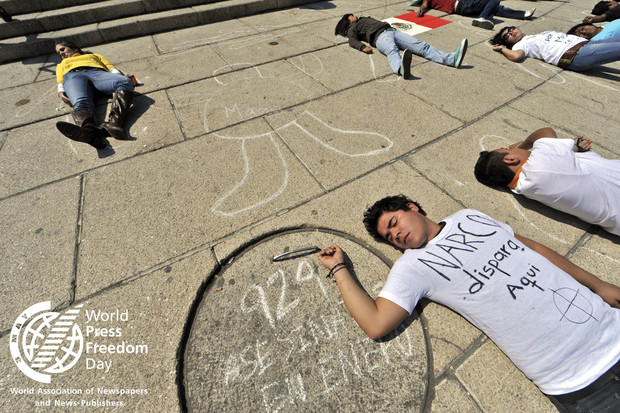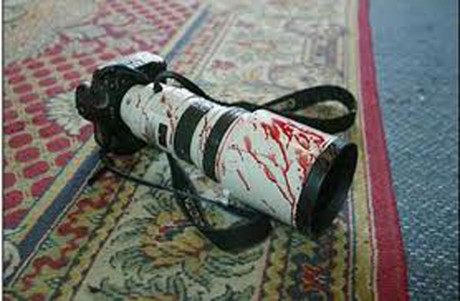Ten journalists were killed in both Mexico and Pakistan in 2010, as narcotics trafficking in the former and insurgency in the latter have put journalists in the line of fire. That compares with nine killed in Mexico and eight in Pakistan in 2009.
Honduras emerged as a deadly country for journalists, with eight killed in 2010 and many others receiving death threats. Most of the journalists targeted covered organised crime, drug trafficking and land disputes. Journalists have also been caught in the violent political polarisation between the opponents of the June 2009 military coup and its supporters.
The 2010 death toll, released after investigation into all potential media murders, compares with 99 killed in 2009, 70 killed in 2008, 95 killed in 2007, 110 killed in 2006 and 58 killed in 2005.
In addition to the dangers of covering war and conflict, journalists in many countries are also being targeted and killed for investigating organised crime, drug trafficking, corruption and other crimes. They are often killed with impunity, with nobody brought to justice for the murders in the majority of cases.
"Killing journalists is the ultimate form of censorship, and a direct attack on society as a whole. Yet far too often, the perpetrators of these crimes never face prosecution," said Christoph Riess, CEO of WAN-IFRA, the global association of the world's press.
"These murders should be prosecuted thoroughly and those responsible brought to justice. Journalists must be able to exercise their right to freedom of expression without fear of violence," he said.
Journalists and other media workers were killed in 24 countries in 2010: Afghanistan (1); Angola (2); Brazil (1); Bulgaria (1); Cameroon (1); Colombia (1); Cyprus (1); Democratic Republic of Congo (1); Greece (1); Honduras (8); India (1); Indonesia (3); Iraq (7); Mexico (10); Nepal (2); Nigeria (3); Pakistan (10); Philippines (3); Russia (1); Rwanda (1); Somalia (2); Thailand (2); Uganda (2); and Yemen (1).
The full list can be found at here.
Several press freedom organisations track the number of journalists killed each year. The numbers vary based on the criteria used by different associations. WAN-IFRA’s figures include all media workers killed in the line of duty or targeted because of their work. It also includes cases where the motive for the killings is unsure or where official investigations have not been completed.
WAN-IFRA, based in Paris, France, and Darmstadt, Germany, with subsidiaries in Singapore, India, Spain, France and Sweden, is the global organisation of the world’s newspapers and news publishers. It represents more than 18,000 publications, 15,000 online sites and over 3,000 companies in more than 120 countries. The organisation was created by the merger of the World Association of Newspapers and IFRA, the research and service organisation for the news publishing industry.
Learn more about WAN-IFRA at http://www.wan-ifra.org or through the WAN-IFRA Magazine at http://www.wan-ifra.org/magazine





